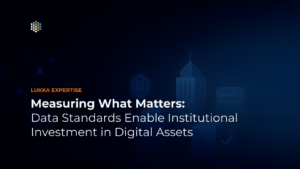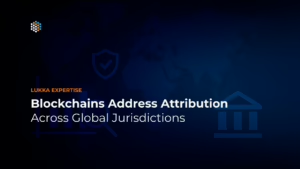Author: David Shakow, Professor Emeritus, University of Pennsylvania School of Law
The statements in this paper represent the views of the author only and should not be attributed to the University of Pennsylvania School of Law. Further, this document should not be treated as legal advice to any reader or to Lukka.
Normally, gain or loss on a transfer of property to a domestic corporation in exchange for stock is not taxed if the transferors are in control of the corporation immediately thereafter (Section 351). An exception exists when the corporation is foreign.). No gain or loss is recognized on a transfer of property to a domestic partnership in exchange for an interest in the partnership. It does not matter whether or not the contributing partner controls the partnership (Section 721).
There is an exception to each of these rules where the corporation is an “investment company” or a comparable partnership (Sections 351(e)) and 721(b)). Section 721(b) incorporates the rules of section 351(e), so it is not discussed separately below). An investment company is a company whose assets consist of investment assets listed in section 351(e). The regulations provide a more specific standard and include in the term “investment company” a corporation more than 80% of whose assets are held for investment and consist of readily marketable stocks and securities (Treas. Reg. Sec. 1.351-1(c)(1)(ii)).
The statute and regulations treat many items as stock and securities (Section 351(e)(1)(B)). Would virtual currencies fit under any of these categories?
One item in the list is foreign currency. IRS Notice 2014-21 reflects the IRS’s position that virtual currency, as described there, is not foreign currency. Thus, bitcoin, Ether, and other similar cryptocurrencies would not fit within this category. However, a number of countries, including China, have indicated that they might issue their own currency in an electronic form. If any of these discussions come to fruition, it would seem likely that the IRS would accept such a virtual currency as a foreign currency. This is because, in such an instance, the virtual currency would be legal tender in the relevant country.
Also included in the list are “interests in any entity if substantially all of the assets of such entity consist . . . of any assets described in any preceding clause.” One category of virtual currency is a “stablecoin.” Such a virtual currency is intended to mimic the value of some underlying currency on which it is based. In most structures, the underlying currency is held by the entity issuing the stablecoin. In that structure, it may well be the case that the stablecoin could be treated as an interest in an entity substantially all of whose assets are that currency. Accordingly, such a virtual currency would be treated as a “stock or security” for purposes of these provisions. This would seem to be true also of a stablecoin based on US currency since one of the clauses in this provision is “money,” that is, US currency, so an entity issuing a US stablecoin could be holding dollars to back up what it has issued. If it is, the stablecoin would be a “stock or security” for this purpose.
The term “investment company” is also relevant in the reorganization rules (Section 368(a)(2)(F)). That provision excludes from the reorganizations described in section 368(a) that get tax-free treatment, reorganizations in which two or more parties to the reorganization are investment companies. Part of the definition of an investment company for this purpose is that 80% of the value of the company’s assets consists of assets held for investment. All virtual currencies certainly might qualify under that part of the definition. It is noteworthy that, at one point, the IRS proposed regulations that would have incorporated this broader definition of investment company into the definition under section 351(e), discussed above, although that is clearly contrary to the legislative history of section 351(e). At this time, however, those proposed regulations have been withdrawn, and there is no indication that the IRS intends to re-propose them in that form.
Another part of the definition of an investment company in the reorganization area is that 50 percent or more of its total assets are stock or securities. For this purpose, securities include investments constituting security within the meaning of the Investment Company Act of 1940 (15 U.S.C. 80a-2(a)(36)). IRC Section 368(a)(2)(F)(vii). Included within the definition of security in that provision is “any put, call, straddle, option, or privilege entered into on a national securities exchange relating to foreign currency.” However, the SEC has not yet held that a cryptocurrency is a foreign currency for this purpose, nor has it concluded that any general cryptocurrency (like Ether) is a security.
It has indicated that tokens marketed like stocks are securities that it may regulate in the case of The DAO. Securities and Exchange Commission, Release No. 81207 (July 25, 2017), available at https://www.sec.gov/news/press-release/2017-131.
The definition of “stock or securities” from section 351(e)(1)(B) is not incorporated in Section 368(a)(2)(F)(vii). Accordingly, as of now, cryptocurrencies would not be relevant for purposes of this 50% test.
For purposes of both section 351(e) and section 368(a)(2)(F)(vii), the IRS may at some point indicate to what extent holding virtual currencies affects the application of these definitions. However, there is no indication that this is an issue of current interest and concern at the IRS. Accordingly, it does not appear that virtual currencies will be relevant in respect of section 351(e) or section 368(a)(2)(F)(vii) beyond what was discussed above.



